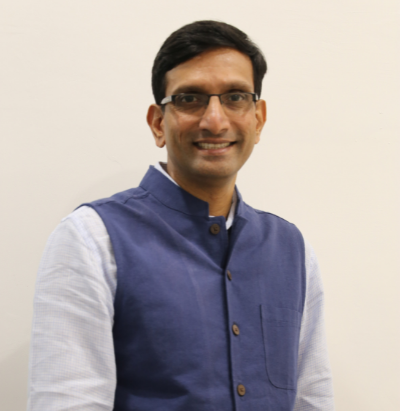Economy, Politics and Society introduces students to the main currents of economic thought, the ways in which geography, history and institutions have shaped the trajectory of nations, and how basic concepts such as work and labour define both the individual and society. The important facts and events that have shaped economic development around the world, and influential theorists who have had a major impact on our thinking about the Economy, Politics and Society, will be discussed to help students understand the modes of reasoning that have been deployed in this field.
Department: Sociology and Anthropology | Semester: Monsoon 2021
This course introduces seminal writings related to the emergence of modernity on the Indian subcontinent. We will explore the evolution of modern South Asia from 1818 until 1947 survey major figures who grappled with and helped shape social, political and economic struggles during the British colonial period and thereby formed the basis for our present. We will do this by closely examining debates about religious reform, the role of women, nation formation, and caste stratification, complexity of the social and political discourse of the period. We will analyse primary texts, including autobiographies, speeches, dialogues, treatises, ethnography, and literary fiction and also look at some seminal secondary sources and eminent historians and social scientists who contributed to our understanding of the present.
Department: Political Science | Semester: Monsoon 2021
This course provides an introduction to the world of social science (especially economics and politics) by asking a question we all care about: Why are some countries more ‘developed’ than others; why are some Indian states more developed than other states? Why, for instance, is it safer for women to walk on the streets of Mumbai rather than Sonepat? And why is the average Botswanian healthier than the average resident of Somalia? The course begins by studying different definitions of “development”. It then looks at the various explanations for development, from political institutions to economic growth to regime type, to cultural mores to leadership. Apart from the substance of the course, students will also familiarise themselves with key concepts in social science, such as: research design, correlations, dependent and independent variables, regression analysis, causal mechanisms, and randomized controlled trials.
Faculty Name: Saptarshi Mukherjee
Department: Economics | Semester: Monsoon 2021
The design of social institutions (e.g., marriage, property rights, electoral systems, markets) and the way they function matter to every facet of our lives. Often, the outcomes depend on what game theorists call `strategic’ behaviour. This is just saying that our actions and choices are made keeping in mind the actions and choices of others. For instance, my decision to be a good citizen (in class, in life) may well depend on similar decisions by others. The outcome (e.g., pollution, global warming, traffic congestion, the spread of Covid) is the aggregate of each of these micro-decisions. Clearly these can be good or bad. Indeed, very often they are bad despite well intentioned policies. Why is that?
In this course we aim to introduce multi-agent interactions using game theory. We will follow an example-based approach where intuitive reasoning would be provided to explain various phenomena as mentioned earlier. This would illuminate why co-operation can be hard and when it can be sustained. We will discuss, using examples, how one can circumvent the problem of inefficiency led by strategic interactions. Several applications from market and institution design such as voting, auctions and matching will be discussed. Further, it is interesting to model some of the observable characteristics in the biological kingdoms as strategic interactions. For instance, consider oak trees in a wood shading each other. If the surrounding trees are tall, then a tree must also grow tall to get more light. We will discuss how modeling such observations as games helps us understand evolutionary outcomes in phenotypic terms.
Faculty Name: Rita Brara
Department: Sociology | Semester: Monsoon 2021
This course introduces seminal writings related to the emergence of modernity on the Indian subcontinent. We will explore the evolution of modern South Asia from 1818 until 1947 survey major figures who grappled with and helped shape social, political and economic struggles during the British colonial period and thereby formed the basis for our present. We will do this by closely examining debates about religious reform, the role of women, nation formation, and caste stratification, complexity of the social and political discourse of the period. We will analyse primary texts, including autobiographies, speeches, dialogues, treatises, ethnography, and literary fiction and also look at some seminal secondary sources and eminent historians and social scientists who contributed to our understanding of the present.
Department: Economics | Semester: Spring 2022
The course is primarily targeted towards students who are interested in getting a flavour of economics in their academic journey without necessarily specialising in it. The course introduces you to the framework and language used in economics to assess and understand the world around us. The course will help you answer the following questions using an economic framework. How do people make decisions? How to make sense of the decisions taken by people? How do you come up with a causal framework to understand a phenomenon? How do economists formulate and test a hypothesis? In which cases the markets provide the efficient outcome and where should governments intervene? Students will also be introduced to certain aspects of economic history, the role of economic institutions in governing the trajectory of economies and our lives, principles of decision making in a world marked by scarcity and strategic interaction. We will also go on to cover other topics, including discrimination, unemployment, inequality and poverty.
Department: International Relations | Semester: Spring 2022
The central preoccupation of modern social theory—from the 18th century onwards—has been to plumb the nature and possibility of the social bond in a non-religiously sanctioned social order. The very notions of economy, politics and society that we take for granted were conceptualized and transmuted with the onset and development of modernity. This course offers an introduction to the key texts and thinkers of modern social theory—Hobbes, Rousseau, Smith, Hegel, Marx, Durkheim, Weber, Keynes, Hayek, Beauvoir, Foucault—as well as the concomitant rise of the modern state, democracy and capitalism. In particular, it aims at probing the relationship between the theories and institutions of modernity. In so doing, this course intends to ground students in the conceptual and historical foundations of contemporary social sciences. The course assumes no prior knowledge of economics, political science or sociology—only a willingness to read original texts that defy disciplinary boundaries and understand their historical context.








